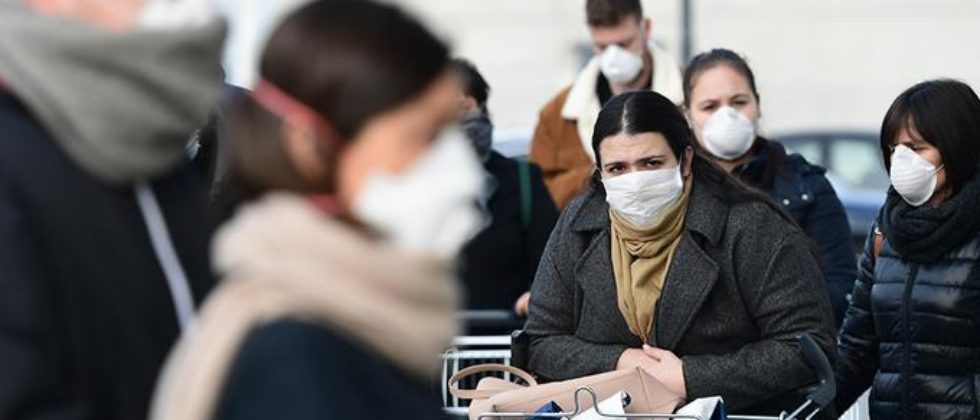news
“CORONAVIRUS: a pandemic without borders”, an article by Dr. Leonel Fernández
March 30, 2020
Santo Domingo, DR – Throughout history there have been numerous pandemics which have resulted in millions of deaths in distinct parts of the world. Among these is the Antonine Plague, the Plague of Justinian, the Great Bubonic Plague, smallpox, and the Spanish Flu.
However, what has happened since the beginning of the 21st century is that new epidemics have arisen, which were essentially generated by a significant increase of the population, an accelerated urbanization process and an unprecedented increase of international flights.
Within these emerging epidemics we find those that are part of the coronavirus family. The first to appear in 2002, in the province of Canton, China (now called the city of Guangzhou), was one of severe acute respiratory syndrome (SARS) that produced an atypical pneumonia.
Later in 2012, in Saudi Arabia, the Middle East Respiratory Syndrome (MERS) developed and consisted of a severe acute respiratory syndrome accompanied by fever, diarrhea and renal disease.
Recently, towards the end of December 2019, in the city of Wuhan, China, a new coronavirus arose that has been named COVID-19. Despite all forecasting, this infectious agent has been labelled as a global pandemic by the World Health Organization (WHO) and has currently spread to more than half a million people and resulted in the death of around 24 thousand people. To contain the spread of the pandemic, countries have applied a mixture of measures. For example, in China, the measures consist of isolating all the inhabitants in principal cities.
In Korea, a program of massive diagnostic tests was implemented which identified affected people, even if they did not present any symptoms. The same occurred in Germany, where the government was proactive in obtaining tests.
In Spain there was a decree of a state of alarm throughout the entire nation for 15 days. France closed its borders. Italy prohibited all commercial activities, except for grocery stores and pharmacies. In the U.S., international flights were suspended, and large gatherings and group activities were prohibited.
The Case of the Dominican Republic
The infectious plague is now spread throughout all the continents of the planet, and has aroused fear, anxiety and uncertainty amongst the Dominican society. Several days after the first confirmed case in the country, at the beginning of March, there were only 5 additional cases reported.
However, there was silence regarding the real scope and fatality of the coronavirus in the Dominican Republic. Massive campaigns of citizen orientation were not carried out, and even though the international field alerted everyone about the imminence of a sanitary crisis, at the national level, life continued, detached from the global noise, and the energy was concentrated on the celebration of municipal elections, proposed for March 15th.
It was only on the eve of the elections that the government announced the month long suspension of flights arriving from Europe, China, South Korea and Iran, among other measures; and later a state of emergency was declared; a partial stay-at-home order was announced, as well as measures of social distancing to control the circulation and clusters of people.
For our country, as well as for the rest of the world, the COVID-19 pandemic presents health, economic and social challenges.
In terms of health, in accordance with the recent information offered last Sunday by the Ministry of Public Health, the Dominican Republic currently has 839 confirmed cases of infected people and 39 deaths.
In accordance with the data from the prestigious North American university, Johns Hopkins, the number of people infected makes us in the fifth most affected country in Latin America, surpassed by Brazil, Chile, Ecuador and Panama.
It is evident that the late response on behalf of the authorities, as well as the announcement of preventive measures at the last minute, has negatively affected the attempt to contain the spread of the virus in our country.
The lack of socialization of clear protocols of detection, monitoring and control of contagion, as well as the inability to carry out tests for the entire population, has resulted in the exponential spread of the virus a month before the state of emergency was decreed, resulting in the 719 cases of infection.
Great Challenges
The previously mentioned data reflects the great challenge that we face to manage our health situation. Up until now, the countries that have achieved the best results in alleviating this global tragedy have been, as I’ve mentioned, those that have applied measures to detect the virus.
Although we recognize the efforts by the government to guarantee free access to tests for people over 59, it is an insufficient measure. To contain the exponential growth of the ailment, it’s essential that diagnostic tests are accessible to all in a speedy, free and massive scale.
It’s from these findings of confirmed cases that the politics of social isolation are adopted concerning the people that were in contact with those who were contagious. It’s in accordance with the data collected from those infected, such as the places they visited and those they were in contact with, that a cartography of contagion can be made, and a realistic projection of possible expansion can be done.
Of course, this is all for the purpose of focusing preventive public politics towards those communities, which is the most appropriate and universally validated way to fight this intimidating coronavirus pandemic.
In the matter of health management, there are other challenges that we must face to come out victorious as a nation from this grand battle. First, there is the concerning availability of beds to attend to the usual medical emergencies as well as those generated by the COVID-19 crisis.
It is pertinent that the Dominican government carries out agreements with the hospitality sector to amplify the availability of beds and to specialize attention to cases, as is being done in Spain and New York.
Secondly, there is the need of personal protective equipment for those who risk their lives every day to keep us healthy; our doctors, nurses and health personnel, as well as civil servants, military and police officers.
There is no doubt that the global impact in the fields of health, the economy and society generated by the propagation of this new coronavirus, COVID-19, will result in one of those decisive moments that change the course of history, as occurred with the fall of the Berlin Wall, the collapse of the Soviet Union and the terrorist attacks of September 11.
Although microscopic in its dimensions, this virus is so determinant that it is now a global pandemic that does not respect borders.






